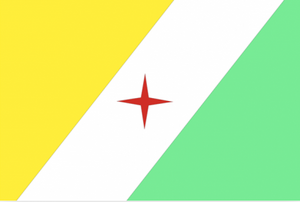Ludviska
This article is incomplete because it is pending further input from participants, or it is a work-in-progress by one author. Please comment on this article's talk page to share your input, comments and questions. Note: To contribute to this article, you may need to seek help from the author(s) of this page. |
Republic of Ludviska Ludviska | |
|---|---|
|
Flag | |
| Motto: Dasii a patrian !! | |
| Anthem: Lei viva Ludviska! | |
| Capital | Millago |
| Official languages | |
| Ethnic groups |
|
| Religion | Catholicism
|
| Demonym(s) | Ludviskan |
| Government | Parliamentary Unitary Republic |
• President | Michaello da Silva |
| Legislature | Ludviskan Republic |
| Independent state | |
• Poppy Revolution | 1st June 1792 |
• National Day. | 1st June |
| Area | |
• Total | 385,207 km2 (148,729 sq mi) |
| Population | |
• September 2022 estimate | 58,850,650 |
| GDP (PPP) | 2023 estimate |
• Total | $941,257,296,100 |
• Per capita | $15,994 |
| GDP (nominal) | 2023 estimate |
• Total | $588,329,948,050 |
• Per capita | $9,997 |
| Gini (2022) | medium |
| HDI (2022) | high |
| Currency | Lixe (Ł) (LIX) |
| Time zone | UTC0 (0) |
| Driving side | left |
| Calling code | +13 |
| Internet TLD | .ldv<br |
Ludviska, officially the Republic of Ludviska is a parliametary unitary republic, made up of administrative regions dependent on the central government. Its capital city, Millago, which lies on the Leight River, is home to the country's political, judicial and financial institutions. The country is located in the northwest of the continent of Olivacia. Ludviska borders Riamo to the north, Ezenchia to the east and Motosayu to the south.
The country has an estimated area of 1,100,000 square kilometers. The prevailing climate is tropical savannah, with heavy rainfall, high humidity, and high temperatures during most of the year. In the west of the country, the subtropical climate dominates, with more moderate and stable temperatures throughout the year.
The population of 58,850,650 inhabitants is quite well distributed throughout the territory. The benevolent climate and fertile lands allow this to happen. However, there is a certain population concentration on the north and west coasts of the country. The cities with the largest population are Millago, Dahrá, Caraçao and Smerk. These four cities concentrate a total of 40% of the country's population.
With a long and diverse history, Ludviska has unique origins in all of Anteria. Originally, Celtic peoples inhabited the territory. Around the 11th century, settlers of mostly Portuguese origin (although also some Spanish) arrived in the country and settled there. Thus, they established the Catholic religion in the nation. The official language of the country is the Ludvisk. Unlike in other colonized countries, slavery was not of great importance in the country. The native population was converted to Catholicism, and there were no major ethnic, political, or social conflicts.
Ludviska is classified as a developing country with a capitalist mixed economy. The State controls certain strategic sectors of the country. In most of the economic sectors there is enough economic freedom, although some of them are intervened occasionally. Beginning a weak industrialization at the beginning of the 20th century, the country depended mainly on agriculture until the 1980s. From those years, the government began to make investments with public-private collaboration, opening numerous factories in the country. Currently, industry is the sector that contributes the highest percentage to GDP, being 59%. The main industries are paper, food packaging and clothing. The tertiary sector is quite underdeveloped, although it is experiencing notable growth (representing 29% of GDP). Agriculture represents 12% of GDP, being quite mechanized and developed.
Ludviska ranks highly in measures of democracy and political freedom. It scores 88/100 on the Democracy Index, and 76/100 on Political Freedoms. This is due to the existence of a consolidated political culture, where consensus, the search for agreements and democratic processes have always been present. However, the country has certain problems such as notable inequality, a medium-high poverty rate, and notable corruption.
Etymology
The name of the country comes from primitive languages of Celtic origin. "Ludv" means "fertile" and "iska" means "earth".
Language
The only official language of Ludviska is Ludvisk. It has roots from Portugal (55%), Celtic (25%), Spanish (10%) and other languages. It arose approximately in the fifteenth century, coming from the mixture of all the languages of the country. There are certain minority communities that speak Spanish or Portuguese, but these are not officially recognized.
